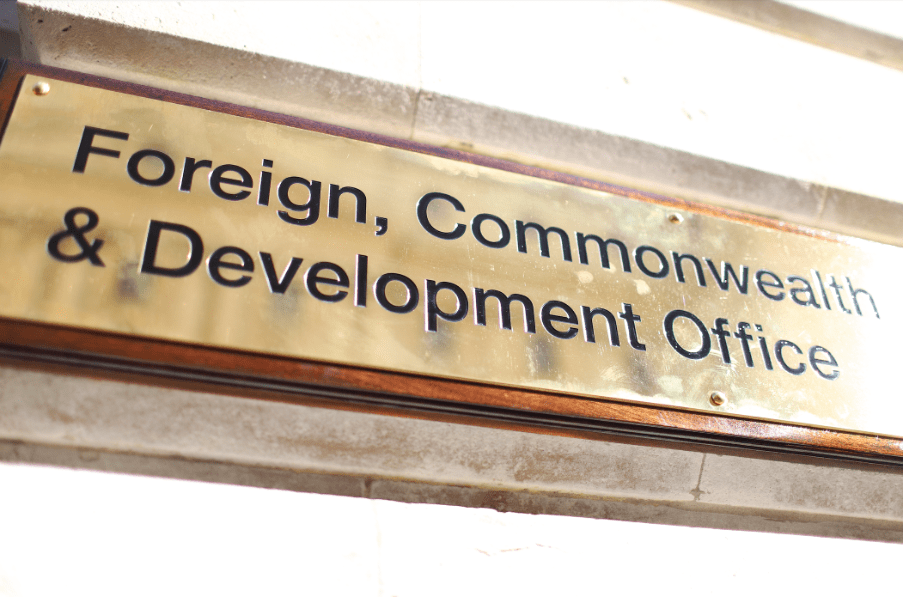Ahead of the G7 and COP26 “Global Britain” reneges on humanitarian commitments, costing lives
By Jessica Field, on 11 June 2021
Ahead of the G7 and COP26 “Global Britain” reneges on humanitarian commitments, costing lives
Authored by: Jessica Field
The IRDR annual Humanitarian Summit is almost upon us. After the developments of the last few months, there’ll certainly be a lot to discuss next Wednesday.
Today, leaders of the world’s seven largest ‘advanced economies’ will descend on Cornwall for a G7 meeting to discuss pressing issues, not least COVID-19 recovery and strengthening of the world’s health systems. While ‘Global Britain’ is celebrating its leading role as host for this important event (and the upcoming COP26 in Glasgow), its recent actions instead show a retraction from global leadership and responsibility – particularly around humanitarian action.
In September 2020 (which seems like a lifetime ago in these stretched-out pandemic months), the UK’s Department for International Development was merged with the Foreign and Commonwealth Office to create the Foreign, Commonwealth and Development Office – a vehicle for apparently more aligned development and diplomacy. Commentators were worried about what this would mean for the UK’s world-leading role in overseas development assistance. And they were right to be.

Sign for the new Foreign, Commonwealth & Development Office. Photo: FCDO/2020, Creative Commons Licence. Available on FCDO Flickr.
Just two month later, in November 2020, Chancellor Rishi Sunak announced that the UK government was going to renege on its global commitment – and legal obligation – to spend 0.7% of gross national income on overseas development assistance (ODA). The new 0.5% amount means a £4.5 billion ‘black hole’ in the humanitarian and development budget compared with 2019 figures. The effects of this have been immediate and catastrophic for many essential programmes across the world, and will have damaging ripple effects for many years to come.
Devex’s Will Worley has been tracking the cuts in a handy timeline. Seeing them listed one after the other, week after week, exposes the huge scale of the UK’s retraction from its obligations. Some of the more devastating include a 60% reduction in funding to Yemen, which is seeing one of the world’s worst humanitarian crises as a result of conflict, mass displacement and famine-like conditions. After announcing this cut in March, the UK government admitted “we haven’t done an impact assessment”, putting millions of lives at risk as well as completely undermining its credibility as a donor.
That same month, the UK slashed its Global Challenges Research Fund almost in half, leaving a £120 million gap. This meant dozens of research projects and programmes (which were years in the making and based on long-standing partnerships) were decimated or closed, virtually overnight, rendering people jobless and halting research previously deemed essential for tackling the climate crisis, displacement, human rights violations and other global challenges. Again, with no impact assessment. Even basic communications about the cuts were incoherent, lacked basic guidance and were branded “a shambles” by those affected.

A Rohingya woman pictured at a World Food Programme food distribution supported by UK aid in Cox’s Bazar, Bangladesh, October 2017. Photo: DFID/Anna Dubuis, Creative Commons license, DFID Flickr, 2017.
In May, the UK announced it would cut its contributions to the Rohingya crisis response by 42%, reducing its £47.5 million pledge from 2020 to £26.7 million this year. Aid organisations working with Rohingyas – in what is the world’s largest refugee crisis – have described the consequences as “catastrophic”, and expect Rohingya children to be particularly affected.
The list goes on.
But there has been a fight back – from within the ranks of the Tory Party, as well as humanitarian and climate crisis advocates.
This reduction in 0.7% spending was not debated or approved in Parliament, and Boris Johnson has faced a rebellion about it among his own MPs. In recent weeks, a group of Conservative MPs have been vocal about the damage the government was doing to vital programmes overseas, as well as the UK’s reputation as a world leader in ODA. On Tuesday, Tory rebels tried to secure a vote on the aid cuts – convinced that if a vote was allowed, the government would be defeated. These efforts failed on this occasion, and the Prime Minister reasserted that there was no plan for reversal, nor to give MPs a vote on the matter.
These rebel Conservative MPs have plans to force the government’s hand in other ways, and it remains to be seen whether they’ll make much headway. Nonetheless, as this national debate collides with the G7 summit today and preparations for COP26 – censure might come from other ‘world leaders’ and global organisations, too.
Whatever happens, these issues will make for lively debate at next Wednesday’s IRDR Humanitarian Summit. One of our timely panels is on the different risks and challenges facing the humanitarian sector and humanitarian studies – political and financial, as well as from conflict and COVID-19. Join us and contribute to discussions. Sign up here: https://www.ucl.ac.uk/risk-disaster-reduction/events/2021/jun/irdr-humanitarian-summit-2021-interrogating-changing-risks
Jessica Field is a Lecturer in Humanitarian Studies at the Institute for Risk and Disaster Reduction.
 Close
Close

